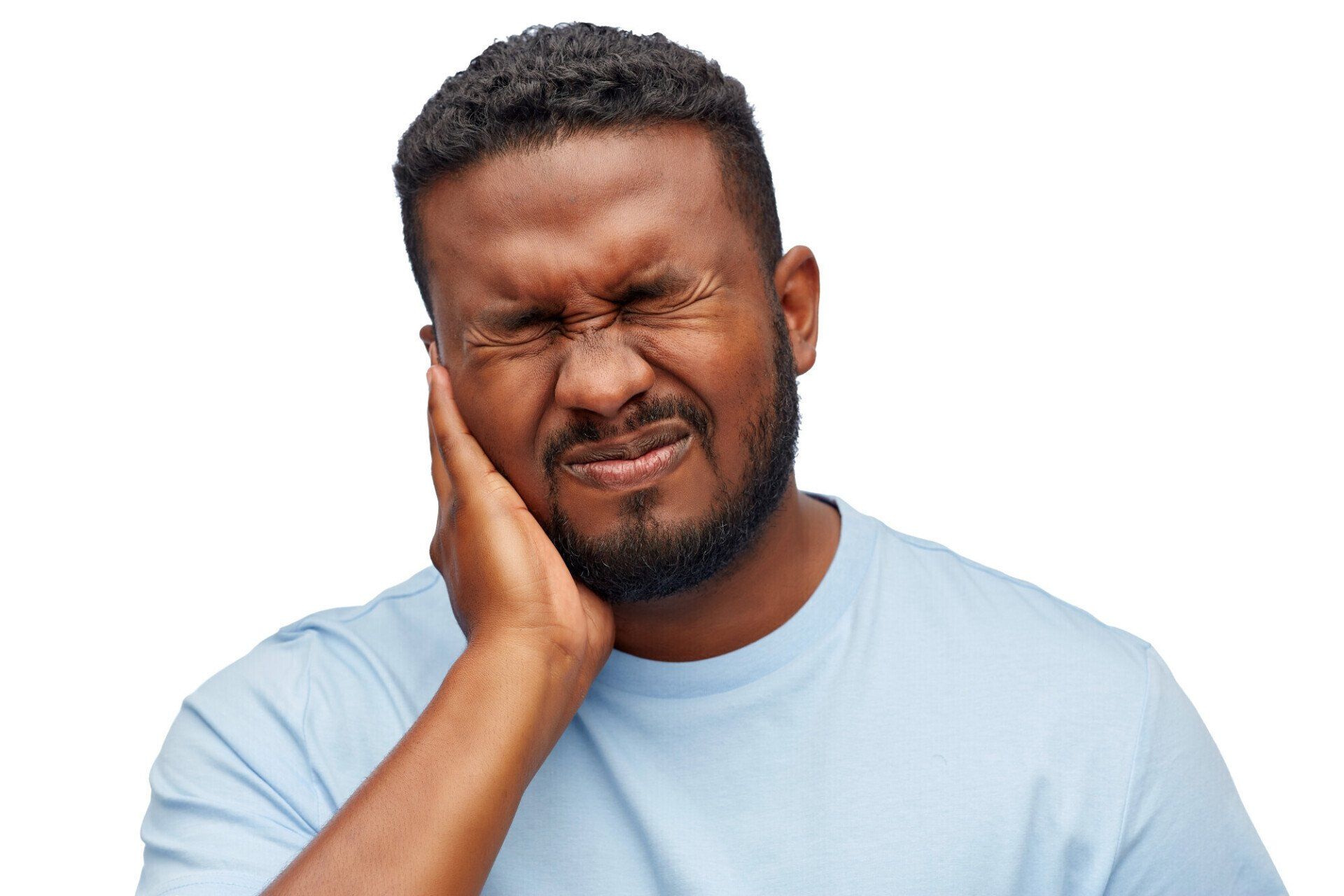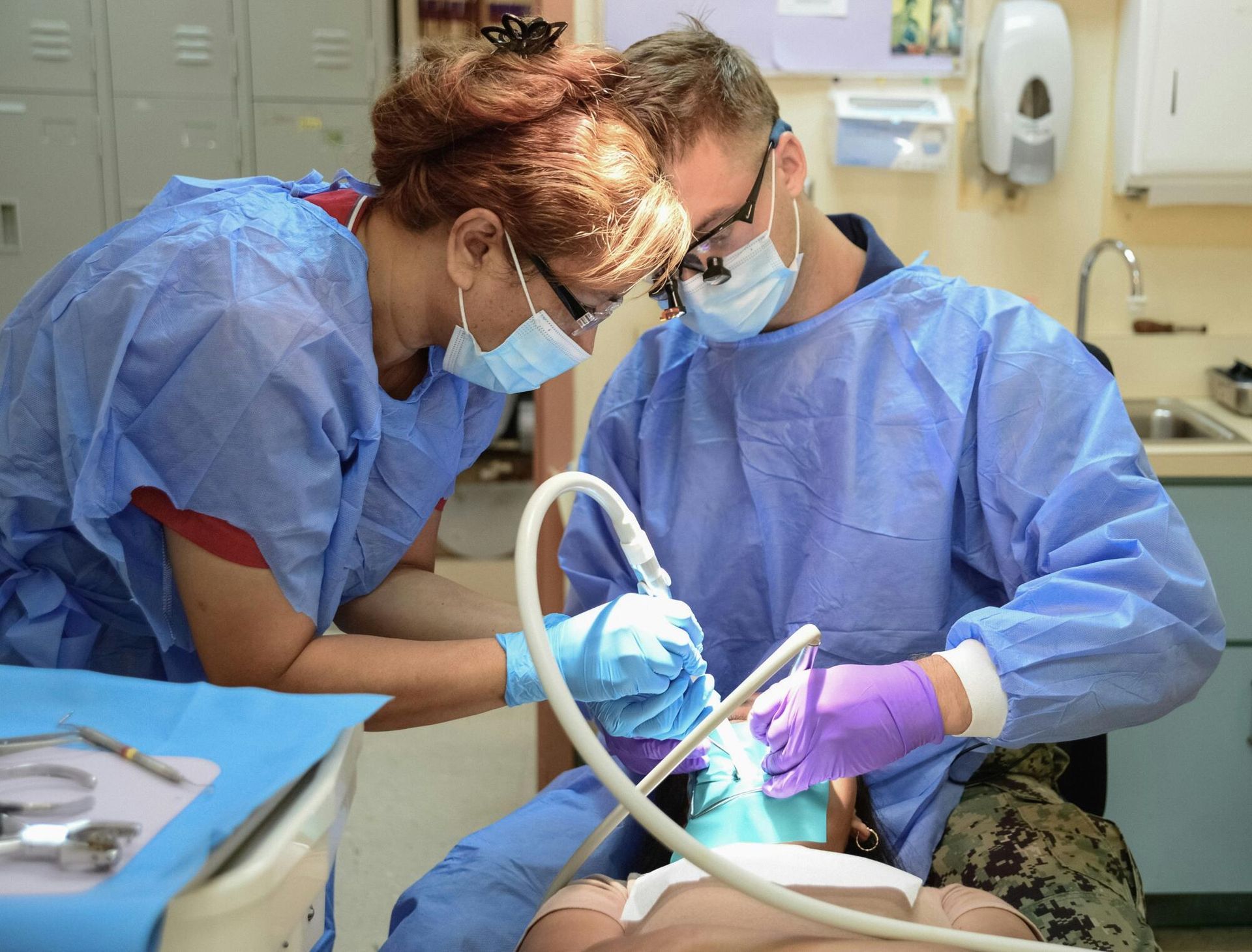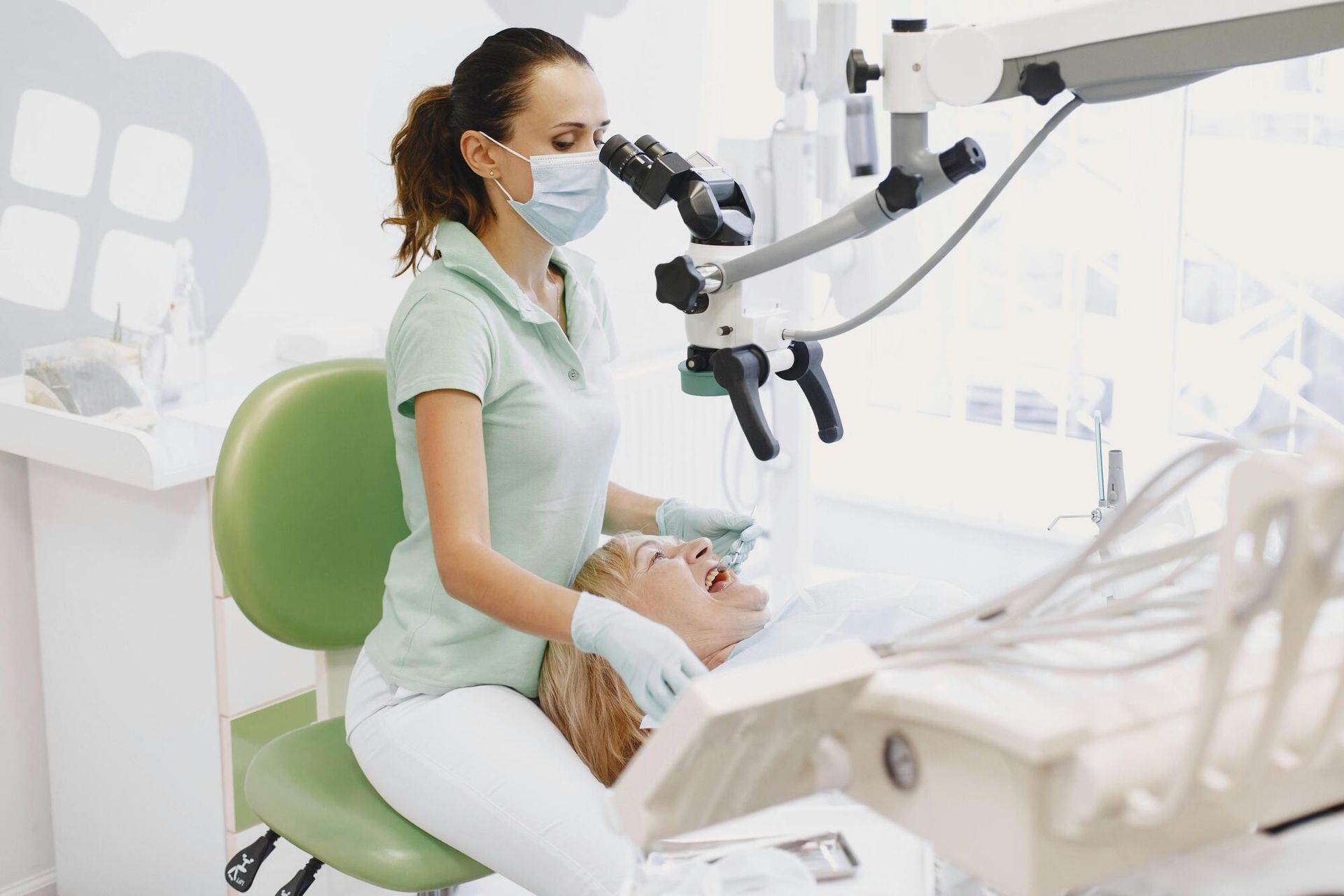How Is TMJ Diagnosed? Your Dentist in Burke, VA Has the Answer

In the US, between 11 to 12 million adults experience problems with temporomandibular disorders (TMD), also known as TMJ. Although TMJ often resolves on its own, for some people, the symptoms of jaw pain, headaches, and difficulty chewing linger on.
If you're experiencing TMJ symptoms, you might be asking, "how is TMJ diagnosed?" It's important to realize that you don't need to live with these symptoms. Once you recognize the signs, diagnosing TMJ is easy when you go to an experienced dentist in Burke, VA, for help. Even better, once you have a diagnosis, a customized treatment plan will get your jaw moving normally once again.
Read on to learn more about TMJ and its diagnosis so you can start feeling better today!
Overview of TMJ
Temporomandibular disorders (TMD) are a group of disorders that affect your jaw muscles, nerves, and temporomandibular joints (TMJs).
Your TMJs connect your lower jaw and skull and are located on both sides of your jaw. The TMJs are complex joints that allow your jaw to move side to side and up and down. When they're working correctly, you can talk, chew, yawn, and swallow without difficulty.
When you have TMJ, pain, inflammation, and damage to the TMJ disc in your joints, your jaw will not move as smoothly.
TMJ Symptoms
When you have TMJ/TMD, you'll experience pain and tenderness around your jaw and facial area. You can experience these symptoms on one or both sides of your face. You'll also typically experience other symptoms, which include:
- Stiffness in your jaw muscles
- Limited movement of your jaw
- Locking of your jaw
- Clicking or popping that occurs with jaw movement
- Dizziness and headaches
- Grinding your teeth
- Misalignment of your bite
TMJ Causes
Many times, the causes of TMJ aren't known, but sometimes an injury or trauma to the jaw can trigger this disorder. Certain health conditions can also play a role, such as arthritis, chronic teeth grinding, or issues with the jaw structure at birth.
How Is TMJ Diagnosed?
It's important to remember that other problems like tooth decay, gum disease, arthritis, or sinus problems can cause similar symptoms. Also, TMJ symptoms can indicate the presence of auto-immune disorders, ear infections, or migraines.
Therefore, your healthcare provider will typically refer you to a dentist for an evaluation. Your dentist will need to do a thorough physical examination and assess your symptoms. They'll also do imaging tests to eliminate other disorders that may be causing your symptoms.
Make an Appointment With Your Dentist
It's best to see a dentist that's experienced in TMJ dentistry for a TMJ checkup. Your dentist will start the exam by asking you about your medical history. They'll ask you questions about your symptoms, such as:
- What type of symptoms do you have?
- How long have these symptoms been present?
- Have you had these symptoms in the past, or is this the first time?
- Does anything make these symptoms worse or better?
- Have you taken any over-the-counter pain medications to treat your symptoms?
Physical Exam
Next, your dentist will do a physical exam. They'll assess your jaw joints for pain and tenderness during this exam. Your dentist will also listen for popping, clicking, or grating sounds when you open and close your mouth.
They'll then check to ensure your jaw doesn't lock as you open and close your mouth. Finally, your dentist will check for facial muscle problems and test your bite.
Imaging Tests
Your dentist will typically do different imaging tests to get a clearer picture of what's causing your symptoms. Tests for TMD include:
X-rays
X-rays can identify problems with your bones and joints. Your dentist will usually order an X-ray to get a good look at your temporomandibular joints, jawbone, and teeth to rule out any other conditions.
CT Scan
Sometimes X-rays may not be enough, and you'll need additional tests such as a CT (computed tomography) scan. A dental CT scan captures detailed 3D images of your jawbone, joints, sinuses, facial bones, and teeth. This test can detect issues like dislocations or fractures.
MRI
A magnetic resonance imaging scan or MRI gives your dentist details about the soft tissues surrounding your jaw joints. An MRI can detect inflammation and any problems with the temporomandibular joint disc.
Treatments for TMJ
Once you're diagnosed with TMJ, your dentist will devise a customized treatment plan for you. You'll typically begin treatment by making lifestyle changes at home.
To relieve symptoms of TMJ, you can apply hot or cold packs. You can use an ice pack on the side of your jaw for 10 minutes, 2 to 3 times daily. You can also try to apply hot packs or a hot washcloth to your jaw for 5 minutes twice daily.
Your dentist may ask you to eat soft foods like soup, scrambled eggs, and mashed potatoes to reduce pain and inflammation.
Over-the-counter medications like Tylenol and ibuprofen can also reduce your pain.
Night Guards
Your dentist may also recommend nightguards or mouthpieces to wear when you sleep. These devices will help prevent teeth grinding and jaw clenching, reducing the pain and inflammation you're experiencing.
TENS
Another effective treatment for TMJ is transcutaneous electrical nerve stimulation or TENS. This treatment involves using electrical currents, which relax your muscles and reduce pain and inflammation.
Surgery
For severe cases of TMJ that don't respond to conservative treatments, surgery may be an option.
The most common surgeries are arthrocentesis and arthroscopy. During an arthrocentesis, fluid is injected into your joint. This fluid washes away inflammation and reduces pressure in your joints so you can regain range of motion in your jaw. An arthrocentesis is minimally invasive, and you can go home the same day.
During an arthroscopy, a small hole is cut in the skin above your joint. A narrow tube or cannula is inserted into the joint through this hole. A camera allows your surgeon to visualize the joint, remove scar tissue, and reshape the joint. They'll also usually inject medication to relieve pain and swelling.
See a Dentist in Burke, VA, About Your TMJ Symptoms
Now that you have the answer to the question "how is TMJ diagnosed," you'll feel much more comfortable during your first appointment.
If you're looking for an experienced dentist in Burke, VA, you can turn to Dental Care Burke for all your dental care needs. We offer general and cosmetic dentistry services like dental veneers, bonding, bridges, and crowns. We also offer TMJ & TMD consultations, including a thorough exam, x-rays, and a customized treatment plan.
Make sure you contact us today to schedule a TMJ consultation!












